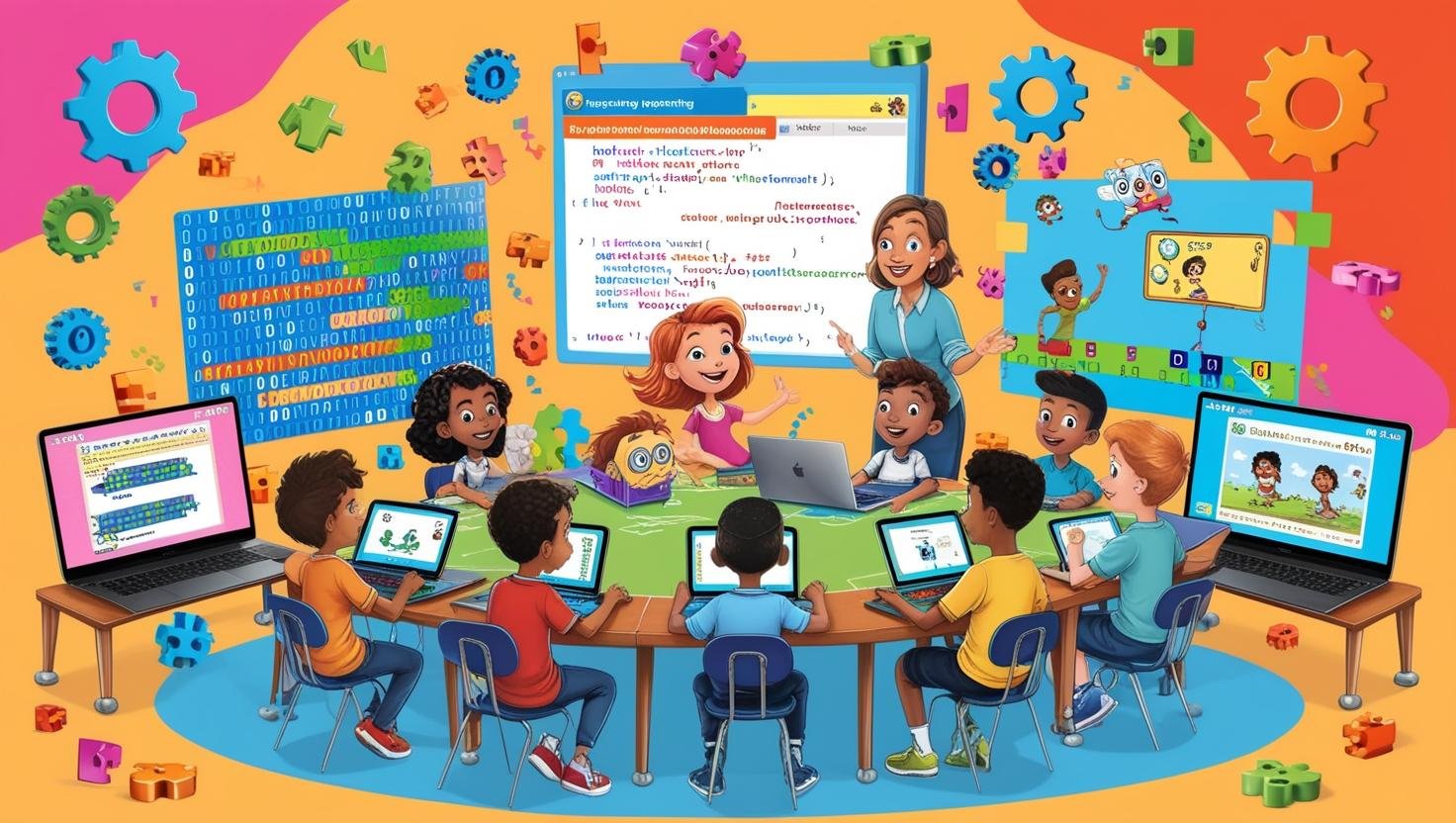https://youtube.com/shorts/mSLP0Lrcpqc
Why Programming is Important for Kids ?
In today’s fast-paced, technology-driven world, coding isn’t just a skill for adults working in tech; it’s becoming a crucial part of education for kids as well. You might wonder why programming is important for children and how it can benefit them beyond just learning to create apps or games. Let’s dive into some of the key reasons.
1. Enhances Problem-Solving Skills
At its core, programming is about solving problems. When kids write code, they learn to break down complex issues into smaller, manageable parts. For example, creating a simple game involves figuring out how to handle inputs, manage game logic, and display results. This process helps kids develop a structured approach to tackling problems, which is a valuable skill in almost every aspect of life.
2. Fosters Creativity
Programming isn’t just about logic and numbers; it’s also a canvas for creativity. Kids can build their own video games, design websites, or even develop interactive stories. The ability to create something from scratch and see it come to life is incredibly empowering. It encourages them to think outside the box and experiment with different ideas, all while having fun.
3. Encourages Persistence and Patience
Coding can be challenging. Kids often encounter bugs and errors that require them to think critically and persistently. Debugging teaches them that failure isn’t the end but rather a stepping stone to success. This process instills a sense of perseverance and patience, traits that are beneficial far beyond the realm of programming.
4. Prepares for Future Careers
The tech industry is growing rapidly, and many of tomorrow’s jobs will involve some level of programming. By learning to code early, kids are better prepared for future career opportunities. Even if they don’t become software developers, the analytical and problem-solving skills gained through programming will be advantageous in any field.
5. Builds Confidence
When kids create something through coding, they get to see the direct results of their efforts. This tangible outcome boosts their confidence and reinforces the idea that their ideas can have a real impact. Completing a project gives them a sense of accomplishment and encourages them to take on new challenges.
6. Promotes Logical Thinking
Programming teaches kids how to think logically and systematically. They learn to create algorithms, which are step-by-step procedures for solving problems. This logical approach helps them understand how to structure their thinking and apply these methods to various situations in their daily lives.
7. Encourages Collaboration
Many coding projects involve teamwork. Whether it’s working on a group project or contributing to open-source communities, kids learn to collaborate with others, share ideas, and communicate effectively. These social skills are crucial for success in both academic and professional settings.
8. Connects with Other Subjects
Programming can also make other subjects more engaging. For instance, creating a project that involves math or science can make these subjects more interesting and relevant. It helps kids see the practical applications of what they’re learning in school.
Conclusion
Incorporating programming into education for kids isn’t just about preparing them for a tech-centric future. It’s about equipping them with problem-solving skills, creativity, persistence, and confidence. These benefits extend beyond coding and positively impact many areas of their lives. As technology continues to evolve, fostering these skills at a young age will help them navigate and thrive in an increasingly digital world. So, whether through a coding class or a fun project at home, encouraging kids to learn programming is a step towards giving them a brighter, more versatile future.
#WhyLearnProgramming #KidsAndCoding #FutureTechLeaders #CodingIsFun #STEMSkills #UnlockYourFuture #ProgrammingForKids #TechEducation #CodingJourney #InspireToCode
